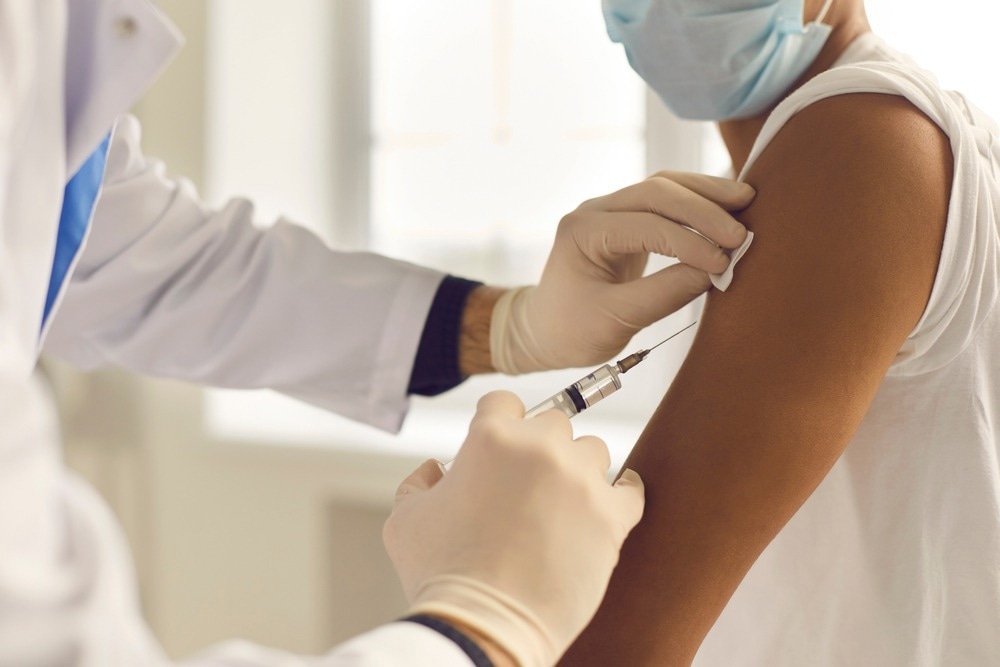In a current research revealed within the Morbidity Mortal Weekly Report, researchers described causes cited by adults for receiving or not receiving coronavirus illness 2019 (COVID-19) booster vaccines.

Background
It is strongly recommended that bivalent COVID-19 booster vaccinations, designed to guard in opposition to extreme acute respiratory syndrome coronavirus 2 (SARS-CoV-2) ancestral pressure in addition to Omicron BA.4/BA.5 sublineages, be employed to strengthen safety in opposition to COVID-19 an infection and extreme sickness. Nevertheless, comparatively few US adults eligible for booster vaccines reported being vaccinated with a bivalent booster dose. The explanations for this low vaccine protection are but unknown.
In regards to the research
Within the current research, researchers explored why adults reportedly did and didn’t obtain the bivalent COVID-19 booster vaccine.
Members have been enrolled by way of the web survey platform Prolific. Eligible contributors have been aged 18 years or older, proficient in English, US residents, and vaccinated with a number of prior COVID-19 vaccines. To recruit nearly equal proportions of adults aged between 18 and 39 years, 40 and 59 years, and 60 years and above, quota sampling was employed. Information assortment was carried out between 1 and 5 November and 6 and 10 December 2022.
Members reported the dates of all prior SARS-CoV-2 infections and COVID-19 vaccination doses. The people vaccinated with the bivalent booster dose got a randomly organized record of 10 proposed causes for receiving the booster dose. They have been requested to pick a number of causes that influenced their resolution. They have been additionally requested to enter further causes if any.
Members who weren’t vaccinated with a bivalent booster vaccine might select from a special set of randomly ordered ten causes for not receiving the booster dose and optionally present further causes. The non-vaccinated participant then seen data relating to the eligibility and availability of the bivalent booster vaccine. Subsequently, non-booster vaccinated contributors indicated whether or not they meant to obtain the booster vaccine after receiving this data and have been contacted by way of Prolific one month later to reply a follow-up survey.
Outcomes
The preliminary survey concerned 1,200 people, with nearly one-third of people categorised in every age cohort. Nearly 65% of the contributors have been White, whereas 51.9% have been feminine. Most sufferers (95.8%) have been vaccinated with two SARS-CoV-2 vaccine doses, together with 396 (34.4%) vaccinated with the bivalent booster vaccine. Roughly 714 (62.1%) reported not receiving the bivalent booster vaccine. Nearly 396 people vaccinated with the bivalent booster vaccine cited a mean variety of 5 causes.
Essentially the most prevalent causes included defending oneself (90.7%), stopping critical illness (80.6%), and defending others (75.0%). The workforce famous that these motives have been fixed throughout age teams. Moreover, the 714 people who weren’t vaccinated with the bivalent booster vaccine cited a mean of 1 motive for not being vaccinated.
Age-specific causes for not acquiring the bivalent booster dosage different throughout the cohorts. The commonest causes cited by adults aged between 18 and 39 years for not acquiring the bivalent booster dosage have been ignorance of eligibility (29.8%), ignorance of the provision of up to date booster doses (23.5%), and the assumption that they have been nonetheless adequately protected in opposition to SARS-CoV-2 an infection (18.5%).
Essentially the most prevalent causes cited by individuals aged between 40 and 59 years have been ignorance of eligibility (22.1%) or the assumption that they have been nonetheless adequately protected in opposition to extreme COVID-19 illness (21.3%) or SARS-CoV-2 an infection (18%). Essentially the most prevalent causes cited by folks aged 60 years or older for not receiving a bivalent booster dose have been the assumption that they have been nonetheless adequately protected in opposition to an infection (20.2%), anxiousness about antagonistic results (17.5%), and uncertainty relating to the booster’s efficacy (16.2%).
Generally, adults aged between 40 and 59 years and 60 years and older didn’t obtain a booster dosage as a result of they believed they have been sufficiently protected against an infection or critical illness. But, among the many 223 individuals who selected both or each of those explanations, 160 (71.7%) had neither examined optimistic for SARS-CoV-2 an infection nor obtained a COVID-19 vaccination dose inside the earlier six months, whereas 114 (51%) had by no means been SARS-CoV-2 contaminated.
After one month, the workforce recontacted the 714 people who weren’t vaccinated with the booster dose on the time of the preliminary analysis. Amongst 714, nearly 624 responded to the follow-up questionnaire. Among the many 427 contributors who meant to obtain the bivalent booster vaccine, 122 had already obtained it. Among the many 197 people who didn’t intend to obtain the booster vaccine, 9 had already obtained it.
The workforce additionally famous that among the many 305 people who meant to obtain the booster vaccine, had not obtained it on the time of preliminary analysis, 252 nonetheless meant to, three not meant to, and 50 have been unsure. Recontacted contributors who had not but obtained the booster vaccine supplied further causes. Amongst these, essentially the most prevalent causes have been being too busy, forgetting, and fearing antagonistic results.
Conclusion
General, the research findings highlighted a lack of understanding, presumed immunity, worry, and uncertainty as important elements for the poor protection of bivalent COVID-19 booster vaccination amongst adults. Along with boosting vaccination accessibility, healthcare professionals and public well being practitioners ought to make use of evidence-based methods to speak booster vaccination suggestions and declining immunity to advertise bivalent booster protection.
